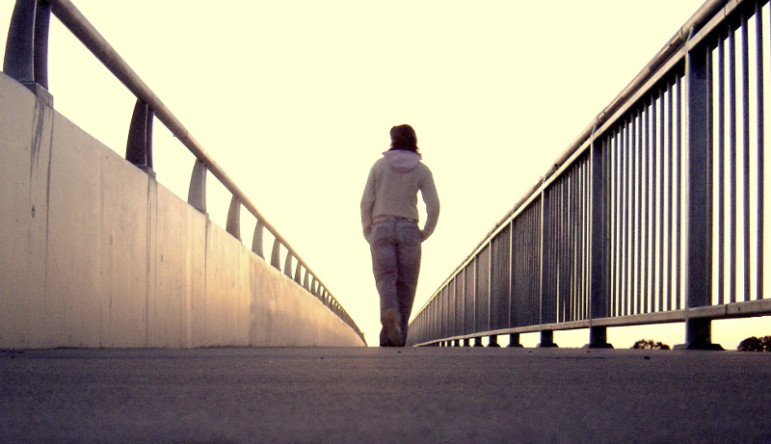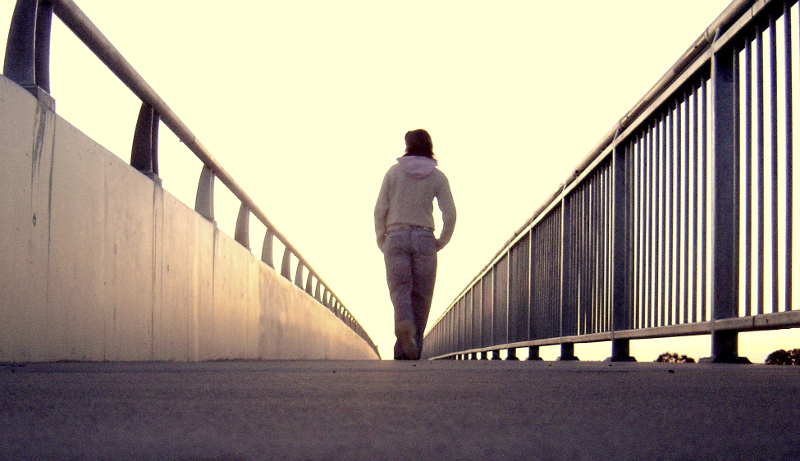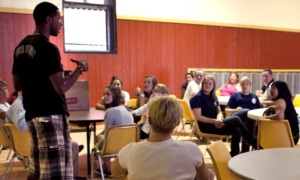
Thinkstock
“It’s a particularly indefensible tragedy that young people are experiencing homelessness.”
The National Coalition for the Homeless and the Ali Forney Center, a New York-based program that offers housing and other services to LGBTQ youth, have formed the National Campaign for Youth Shelter.
The campaign notes that each year as many as 500,000 youths up to age 24 experience homelessness while not accompanied by adults, but there are only about 4,000 youth shelter beds in the country.
“It’s a particularly indefensible tragedy that young people are experiencing homelessness,” Jerry Jones, NCH’s executive director, told Youth Today. “It’s completely outrageous, and I think many people assume this is a problem that someone’s dealing with or that it’s not as large an issue as it actually is.
“There’s a sense of denial as a country in recognizing we’ve got tens of thousands of kids at any given point out there on the streets with nowhere to go.”
Specifically, the National Campaign for Youth Shelter calls for:
-
A federal commitment to provide all homeless young people ages 24 and under immediate access to safe shelter.
-
An immediate federal commitment to add 22,000 shelter beds for young people. The federal government provides existing shelter beds through the underfunded Runaway and Homeless Youth Act, Jones said.
-
A more accurate and comprehensive effort to count the number of young homeless people in the nation to determine the need for shelter beds over the next decade. This would build on existing federal efforts to count the number of homeless young people.
Lesbian, gay, bisexual and transgender youth are disproportionately represented among the population of young homeless people, Jones pointed out.
In some parts of the country, up to 40 percent of young people who are homeless are LGBT, while only about 5 percent of the population is LGBT, Jones said.
“And in many cases, [being LGBT is] why they’re homeless,” he said. “Their families have rejected them because of their sexual identity.”
The homeless young people are a largely invisible population, living on the streets, couch-surfing or sleeping in abandoned buildings, Jones said.
“They tend to blend in with other teenagers,” he said. “They don’t want to identify themselves as being homeless. It’s very risky being homeless. They are almost immediately exploited or there are attempts to exploit them by folks trying to lure them into the sex industry.
“They’re very vulnerable out there and there’s also just a huge stigma attached to being homeless. So young people, I think more so than chronically homeless adults, will try to mask their situation.”
Deborah Weinstein, executive director of the Coalition on Human Needs, said the Washington-based alliance of organizations focused on needs of low-income and vulnerable people, strongly supports the National Campaign for Youth Shelter.
“Making sure our youth can have a decent start in life must be seen as a national obligation,” Weinstein said in an e-mail. “This important new campaign is bringing a shameful national failure to light, and has achievable goals that the public will demand as it learns how we have abandoned so many of our young people.”
She said the lack of shelter for homeless young people reflects misplaced priorities in Congress.
“Congress has shown itself willing to hand hundreds of billions of dollars in tax breaks to big corporations while unwilling either to invest in preventing youth homelessness or to provide even basic shelter to hundreds of thousands of homeless youth,” Weinstein said. “Money is talking, and many in Congress are listening hard.”
The campaign has received endorsements and support from more than 30 organizations, including LGBT youth advocates and housing and anti-poverty organizations.
“It is unprecedented to have so many LGBT organizations join together with prominent national housing and anti-poverty organizations to fight for the humane treatment of impoverished youths,” Carl Siciliano, executive director of the Ali Forney Center, said in a news release.
“With all this support, the National Campaign for Youth Shelter will build a movement to finally prevent youths from being left to suffer homelessness without access to shelter. The wealthiest nation on Earth must not allow its youths to be left out in the streets.”
Financial supporters of Youth Today may be quoted or mentioned in our stories. They may also be the subjects of our stories.
































